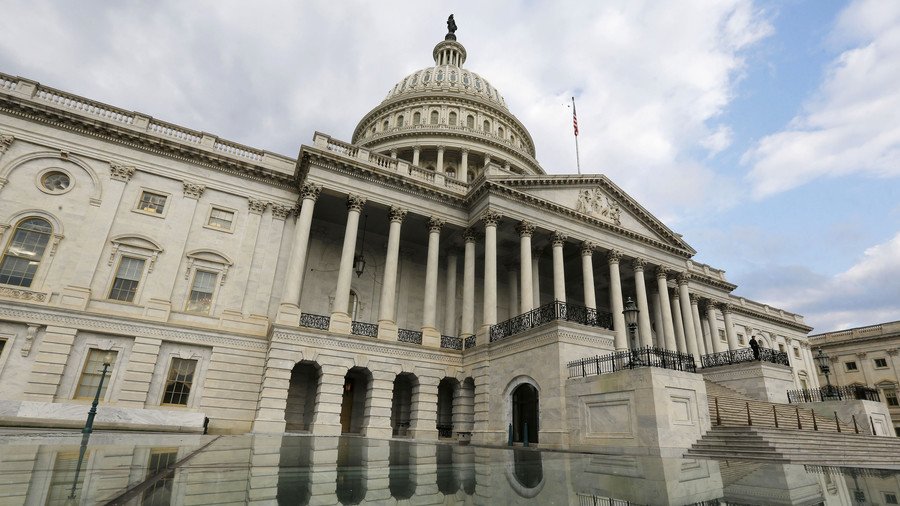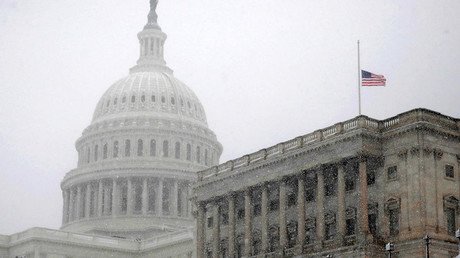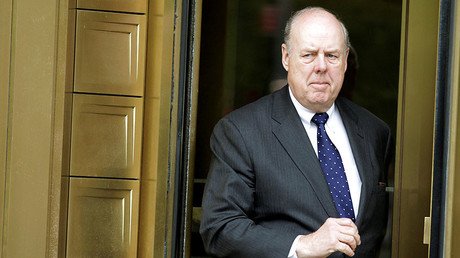Inappropriate meetings & ineffective intel: Key findings of House Committee on Russia probe

The House Intelligence Committee has released a summary of their 14-month probe, which says Donald Trump and his associates did not collude with Russia. Apart from some peculiar lines, it looks like a recap of media headlines.
The full report, which is “based on 70-plus witness interviews and more than 300,000 documents collected,” is not going to be made public for another few weeks in order to give the intelligence community an opportunity to go through it with a fine-tooth comb.
READ MORE: 'No collusion': House Intel Committee votes to end Russia probe
No collusion
The headline finding from the 14-month-long probe was that lawmakers found no evidence of collusion, coordination or conspiracy between the Trump campaign and Russia. The summary notes comprehensively dismiss all of the popular collusion theories, from Trump’s pre-campaign business dealings to involvement with the Wikileaks release of Clinton emails. The contacts with the whistleblower organization are called “ill-advised.”
#CNN producer admits Russia-Trump collusion narrative is ‘bullsh*t,’ just for ‘ratings’ (VIDEO) https://t.co/wESwBFBI5X
— RT (@RT_com) June 28, 2017
As for the stars of the collusion theories, George Papadopoulos and Carter Page the Republican establishment is blamed in the report for turning their backs on Trump. This led to these “less experienced individuals with pro-Russia views” becoming advisers, it states.
And no matter what different media and pundits speculated, the random meetings between Trump associates and then Russian ambassador to the US Sergey Kislyak are not the signs of collusion or conspiracy with Moscow.
Interestingly, one of the findings notes that “possible Russian efforts” to establish a back channel with Trump associates – you know, all those alleged meetings at the Seychelles after the election – actually suggest a lack of collusion during the campaign, since the communication associated with collusion would have rendered a back channel unnecessary.
‘Ineffective’ intel
In a section titled “America Reacts,” the report lists actions of the intelligence community and criticizes most of them as ineffective. They are also criticized for a lack of “proper analytic tradecraft” in their judgement of Russian President Vladimir Putin’s “strategic intentions.”
The FBI is hit the hardest in the report, which calls its actions inadequate when it comes to notifying the victims of alleged hacking. The paper also notes the mistrust of state officials of federal government overreach that hampered the communications between them and the Department of Homeland Security.
Russia attacks
Without going into details or providing any proof, the section of the report titled
“Russia attacks the United States” accuses Moscow of carrying out cyberattacks on US political institutions in 2015 and 2016. It also says that Russian-state actors and “third-party intermediaries” disseminated “documents stolen from US political organizations.” They’re talking about you, WikiLeaks!
Of course, the report could not have failed to mention yours truly. The committee singled out this news organization in one line, claiming that the Russian government used RT to “advance its malign influence campaign.” It previously accused RT of being ‘fake news,’ although it was only able to point to accurate and widely reported stories on the network, and talked to social-media giants like Twitter and Facebook only to find out that RT spends on advertising like any other news outlet.
‘Zero proof’: Twitter reacts to Clapper’s claims that RT influenced #USElection#RussianHackinghttps://t.co/MFmDLI2y3o
— RT (@RT_com) January 6, 2017
Leaks
The summary says that leaks of classified information alleging that Russia tried to help Trump win the election increased dramatically after the election day. They dominated the news as many in Washington were unhappy with the outcome.
The report also found that the continued leaking of classified information damaged US national security and potentially endangered lives. Former director of national intelligence James Clapper is rebuked in the report for providing inconsistent testimony to the committee about his contacts with the media. Clapper now works for CNN as a national security analyst.
BREAKING: Clapper lied to Congress, DCLeaks published GOP documents in 2016 - Assange https://t.co/KCKYFAXd2Npic.twitter.com/wYbLcKgTAr
— RT (@RT_com) May 8, 2017
Usual suspects
Paul Manafort’s name was uttered zillions of times in the media in relation to Trump-Russia collusion, even though the charges against him have nothing to do with the campaign. And the intelligence committee stated just that – none of the charges relate to allegations of collusion, coordination or conspiracy between the Trump campaign and the Russian government.
'US should probe #Manafort’s ‘Ukrainian trail’ instead of blaming Russia with no shred of evidence' - Lavrov https://t.co/ZnIAqxyuhXpic.twitter.com/cXPd8PfhYa
— RT (@RT_com) October 31, 2017
The report says that the infamous dossier compiled by former MI6 spy Christopher Steele was largely based on second- and third-hand sources, which Steele claims were in high places. It also noted that the firm Steele compiled the report for, Fusion GPS, had previously conducted research benefitting Russian interests.
Recommendations
The lawmakers compiled five chapters of recommendations to accompany the findings. Besides calling for more funding of election-related activities and improving relations with local officials, the committee calls for changes to the notorious Foreign Intelligence Surveillance act to “cover malicious international cyber actors.”
Like this story? Share it with a friend!














